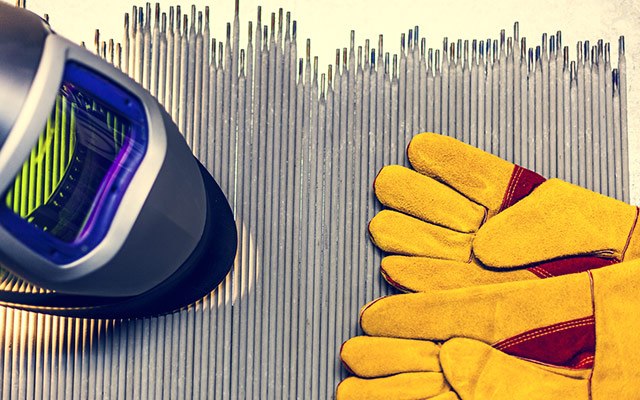
Welding for Beginners: 4 Tips
Welding is a profession that requires a whole person. Someone who is dedicated to welding is happy with this job and is willing to work on continuously expanding their knowledge. The welder must have the appropriate education, which is upgraded with welding courses and learning about various tools and techniques.
Technology is advancing, and with it, so are welding methods. It is necessary to master the hardware required for the craft, as well as to know a whole lot about materials and protection. However, since a novice welder is initially hunting for information and looking for answers to their questions, we’re covering 4 helpful tips for welders at the beginning of their career.
1. Focus on your goals
Some want to become welders because this work was done by someone in the family circle who loved the work. Others would like to inherit or continue a family business or tradition. Others still see their dream profession being in metalworking and welding, and decide to study in this direction.
No matter what motivation brought you to the path of the welder, it is important that you have a certain direction outlined. It doesn’t matter what kind of welding you are interested in or what materials and processes are involved. If you’re missing information, an employer will direct you to the right address to obtain the appropriate course or license. You can also take care of this yourself, especially with so much information now available online.
Find out about the different licenses and where you can get them.
2. Place great emphasis on safety
Once you step into the welder’s shoes, be sure to respect everything you have been taught about safety. For every welder, this comes first, as he works with high temperatures, electricity and gases that can harm both him and the people around him.
Over time, you will get better and better, and safety checks before you begin work will become routine. This feeling should never put you to sleep, as the greatest danger lurks right there. Always pay attention to pre-preparation. Be sure to inspect the welding machine and equipment you will be working with before making the first weld.
3. The more you know, the more you are worth
Your employer may only require you to obtain one of the licenses, as you will need this to work in this job. Despite this, don’t be quick to get comfortable—expand your horizons and learn about other welding methods. We usually talk about MIG, MAG and TIG welding, but there are many other ways and techniques, each of which is special and suitable for certain materials or for welding in special places.
Electrode manual welding, resistance welding, flame welding and the like are just the tip of the iceberg. You may not need and practice all of these methods in your workplace at that moment, but what our grandparents have already told us applies. The more you know, the more you are worth. With the acquired knowledge of several welding methods, you will also be easier to employ and more sought after in the labor market; companies will also work harder to find (and keep) you within their employ.
4. Be smart about your tools
While you may think that a huge amount of expensive equipment must be requires to get started as a welder, let’s just bump that misconception right now. Of course, the equipment you need will depend on whether you will work in a company as an employed welder or embark on an independent path of a welder. In the first case, your equipment will be largely taken care of by the employer.
Otherwise, every novice welder needs:
- suitable protective mask for eyes and face / neck,
- non-combustible clothing (jacket, trousers),
- non-flammable and impact-resistant shoes,
- fire extinguisher,
- measuring devices,
- suitable welding machine,
- saw,
- metal brush.
The work of a welder usually takes place in quite demanding conditions, so it is crucial that welders do everything in their power to protect themselves. This protection also extends to ensuring the safety of others, especially when it comes to working indoors. Paying attention to the surroundings, ventilation and the like all come with the profession and soon become as instinctive as breathing.



